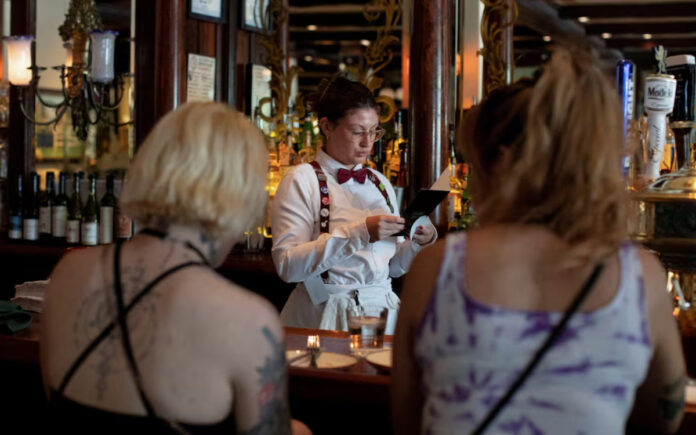New York: The recent warning from the U.S. Surgeon General regarding alcohol’s potential link to cancer may resonate strongly with younger Americans, who have already been shifting toward mocktails and non-alcoholic beverages. Although it remains uncertain whether Congress will act on Surgeon General Vivek Murthy’s recommendation to update alcohol warning labels, data shows a steady decline in alcohol consumption among young adults in the past decade.
Brooklyn resident Amy Hudson, 35, shared her experience, stating that after dealing with chronic migraines starting in 2021, she reduced her alcohol intake from multiple times a week to less than three times a month. “I found mocktails to be a good way to get antioxidants while incorporating anti-inflammatory foods into my diet,” Hudson explained. Ingredients like pineapple, cherry juice, and ginger have proven helpful in managing her migraines, she said.
The US surgeon general's warning of an increased cancer risk from drinking alcohol may resonate most with younger Americans, who are choosing mocktails and juices instead of alcoholic beverages https://t.co/s1OkuRzlBN pic.twitter.com/vervvgFEGC
— Reuters (@Reuters) January 4, 2025
According to a 2023 national survey by the U.S. Substance Abuse and Mental Health Services Administration, 49.6% of Americans aged 18-25 reported consuming alcohol in the past month, a notable decline from 59.6% in 2013.
Sean Goldsmith, CEO of non-alcoholic beverage platform The Zero Proof, believes the Surgeon General’s announcement aligns with a growing recognition of alcohol’s health risks. “More and more people are realizing that drinking alcohol is not good for you,” he said. He added that January, known as “Dry January,” is one of the busiest times of the year for his platform, as people look to abstain from alcohol after the holiday season.
Goldsmith noted that about 90% of The Zero Proof’s customers are alcohol drinkers seeking healthier alternatives, with over 60% of shoppers being women, predominantly Millennials aged 28 to 43.
Also Read | US Plans State Funeral and National Day of Mourning for Jimmy Carter
Public health organizations like the World Health Organization (WHO) have increasingly focused on alcohol-related risks, building on their success in tobacco control. The American Medical Association (AMA) issued a statement on Friday reiterating that alcohol consumption increases the risk of cancer. Despite decades of research on this connection, the AMA pointed out that much of the public remains unaware of alcohol’s cancer risks.
Also Read | Israel Shoots Down Missiles and Drone from Yemen as Regional Tensions Rise
Sara Martin, a 42-year-old salesperson in Los Angeles, isn’t participating in Dry January, but she recognizes mocktails as great alternatives at work events. “I’m in an industry that drinks more heavily than I can keep up with,” she explained. Martin commended younger generations for challenging the alcohol-centric culture but expressed skepticism that cancer risk warnings alone would curb drinking. “It took massive public awareness campaigns to link cigarettes and lung cancer firmly in people’s minds,” she said. “But the labels would be the first step.”



